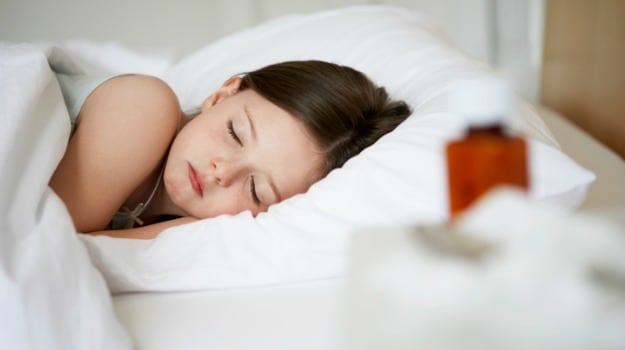If you've been quietly slipping a sip of beer or wine to your little one then put that glass down! A new study suggests that children that have a sip or two occasionally might start drinking by the time they're in high school.
The study was published in the 'Journal of Studies on Alcohol and Drugs' and found that kids who had sipped on alcohol at a very early age were five times more likely to have full drinks in high school and four times more likely to binge drink.
(Drinking Young May Lead to Alcohol Addiction in the Future)
The general opinion has always been that if you give a child just a sip of alcohol he or she might get familiarized with the taste and not crave it at a later stage. A 2012 study done by Kristina M. Jackson corroborates this theory. She writes in her study - 'a substantial proportion of parents believe that children can benefit from sipping drinks with alcohol, as it will remove the "forbidden fruit" appeal of alcohol and the taste will serve as a deterrent. Parents may rationalize that they are teaching their children to drink responsibly, thereby reducing risk of alcohol-related consequences.'
(Study Links Heavy Teen Drinking to Dementia)
Another 1995 study presents the other side of this argument and states that alcohol use at home plays a key role in a child's early development of alcohol-related attitude towards drinking behaviour. But once a child has tried alcohol, he or she may have a heightened awareness of ready access to alcohol at home or elsewhere. This may reinforce the effects of alcohol on the child. But this research is proof of the contrary. "Early experimentation with alcohol, however, might set a young adolescent on the path to later substance use and substance-related problems."
For this new research titled 'The Prospective Association Between Sipping Alcohol by the Sixth Grade and Later Substance Use', 561 Rhode Island junior high school students were enrolled in a web-based study over three years. About one third of the students said that they had tried/sipped alcohol by the start of middle school and most of them got it from their parents at a party or a social gathering.
About 25% of those who had tried it went on to ask their parents if they could have another sip of their beverage. It was also found that wine was the most commonly endorsed beverage for sipping, followed by beer.
The effects of occasional sipping during early years have been clearly outlined by the study but what still remains unclear is how often is too often. Despite these limitations, the study has paved way for an in-depth analysis of exposure to alcohol in early years to substance abuse and risk taking behaviour.
With inputs from IANS






